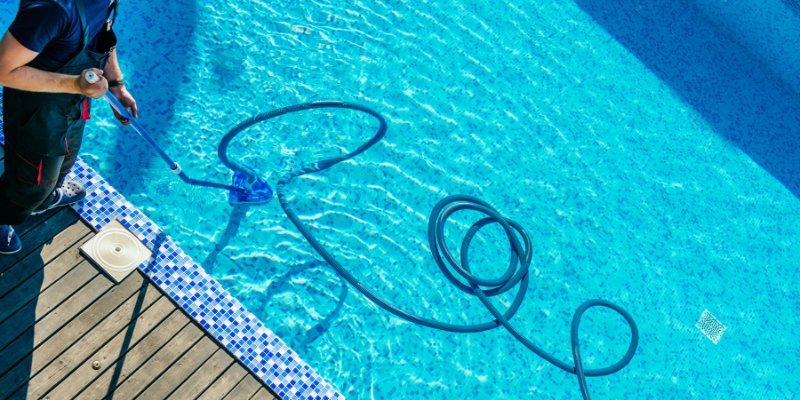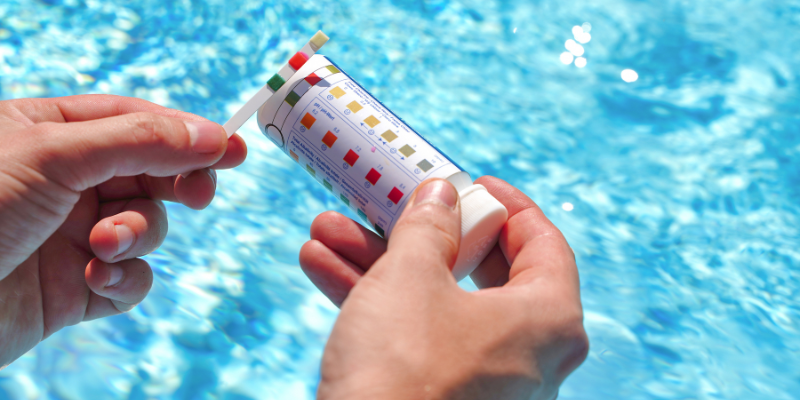
Swimming season is here, and it’s time to dive in! But before you do, it’s worth addressing a common hurdle many swimmers face—skin irritations. To keep your pool time free of discomfort, we’ve put together this handy FAQ guide. From understanding the causes to finding solutions, this guide will help you tackle any pool skin irritations that might come your way.
What Causes Skin Irritation After Swimming in Pools?
Pool-related skin irritation can result from a variety of factors. This could be a sensitivity to the chemicals used in pool water, primarily chlorine. In addition, the presence of bacteria and parasites in some pools may lead to conditions like a swimmer’s itch or hot tub folliculitis.
What is Chlorine Rash, and How Do I Get it?
Chlorine rash, also known as irritant contact dermatitis, is a type of skin irritation triggered by exposure to chlorinated water. In some cases, it may be because the chlorine concentration is too high, while in others, it’s simply because some people are sensitive no matter what.
What Does a Chlorine Rash Look and Feel Like?
- Itchy and red skin after swimming or contact with chlorinated water
- Raised bumps resembling hives on affected areas
- Burning sensation if exposed to high concentrations of chlorine bleach
Don’t let chlorine rashes ruin your swim. With a few extra steps and proper pool maintenance, you can enjoy your summer swims. But remember, always talk to your doctor about any concerning symptoms.
How Can I Prevent Skin Irritation in Pools?
To prevent skin irritation from chlorinated pools and hot tubs, there are a few effective steps you can take:
- Shower before and after swimming: This simple step can significantly reduce the risk of developing chlorine rash and infections.
- Apply barrier creams like sunscreen: Protecting your skin with a cream or lotion creates an additional layer between you and the irritating chemicals in chlorinated water.
- Moisturize after your post-swim shower: Applying a lotion to your skin after swimming can prevent dry, itchy skin.
What Are Alternative Swimming Options for Sensitive Skin?
If you’re prone to skin irritation from chlorinated water, consider swimming in mineral pools, which use natural minerals for sanitization. Using mineral sanitization methods also doesn’t require high amounts of chlorine to keep your pool free of bacteria.
How Does Balancing Pool Chemicals Help Reduce Skin Irritation?
Overly high chemical levels can cause dryness and rashes, while too low levels can lead to bacterial growth and infections. Maintaining optimal pH, total alkalinity, and sanitizer levels creates a safer swimming environment, reducing the chance of skin issues.
Have more questions about balancing pool chemicals? Contact us today and one of our experts would be happy to help!

What’s the Ideal Pool pH for Healthy Skin?
A well-balanced pool has a pH level between 7.2 and 7.8, total alkalinity between 80 and 120 parts per million, and the correct sanitizer level for the type and volume of your pool.
What Steps Do I Need to Take to Balance My Pool Water to Avoid Skin Irritation?
- Test Water Regularly: Use a pool test kit to check pH, alkalinity, and sanitizer levels.
- Adjust pH: Keep the pH level between 7.2 and 7.6. Add pH increaser or reduce as necessary.
- Balance Alkalinity: Maintain total alkalinity between 80 and 120 parts per million (ppm) for chlorine pools.
- Manage Sanitizer Levels: For chlorine pools, aim for 1-3 ppm. Mineral pools should maintain appropriate silver and copper levels as per the system guidelines.
- Shock Pool When Needed: Do this weekly or when you notice high levels of contaminants. This helps eliminate contaminants, improving water quality and comfort.
Where Can I Find the Right Pool Chemicals?
To find high-quality pool chemicals, look for a reputable local business with a strong track record. Check for positive customer reviews, knowledgeable staff, and a broad selection of products. The company should have a deep understanding of chemical use and adhere to safety standards.
What Are Additional Tips to Reduce Swimming Irritations?
- Remove Debris: Regularly skim and vacuum your pool to remove leaves, grass, and similar debris. This helps prevent skin irritation from foreign particles and changes in pH.
- Maintain Adequate Water Circulation: Make sure your pool pump is working properly. Adequate water circulation helps distribute chemicals evenly and prevents localized high concentrations of chemicals that can irritate the skin.
- Filter Maintenance: Regularly clean and backwash your pool filter to effectively remove contaminants from the water.
- Appropriate Swimwear: Opt for swimwear made from nylon or spandex, as these materials are less likely to irritate skin and hold onto harmful chemicals.
- Stay Hydrated: Drinking plenty of water can help keep your skin hydrated so it doesn’t dry out so quickly from chlorine.
Get Everything You Need for Your Swimming Pool Comfort at Leisure Industries
Don’t let skin irritations prevent you from enjoying your swimming pool. With the right information and precautions, you can ensure a comfortable and enjoyable swimming experience. Shop our selection of premium pool chemicals today and keep your water fresh, clean, and balanced!




